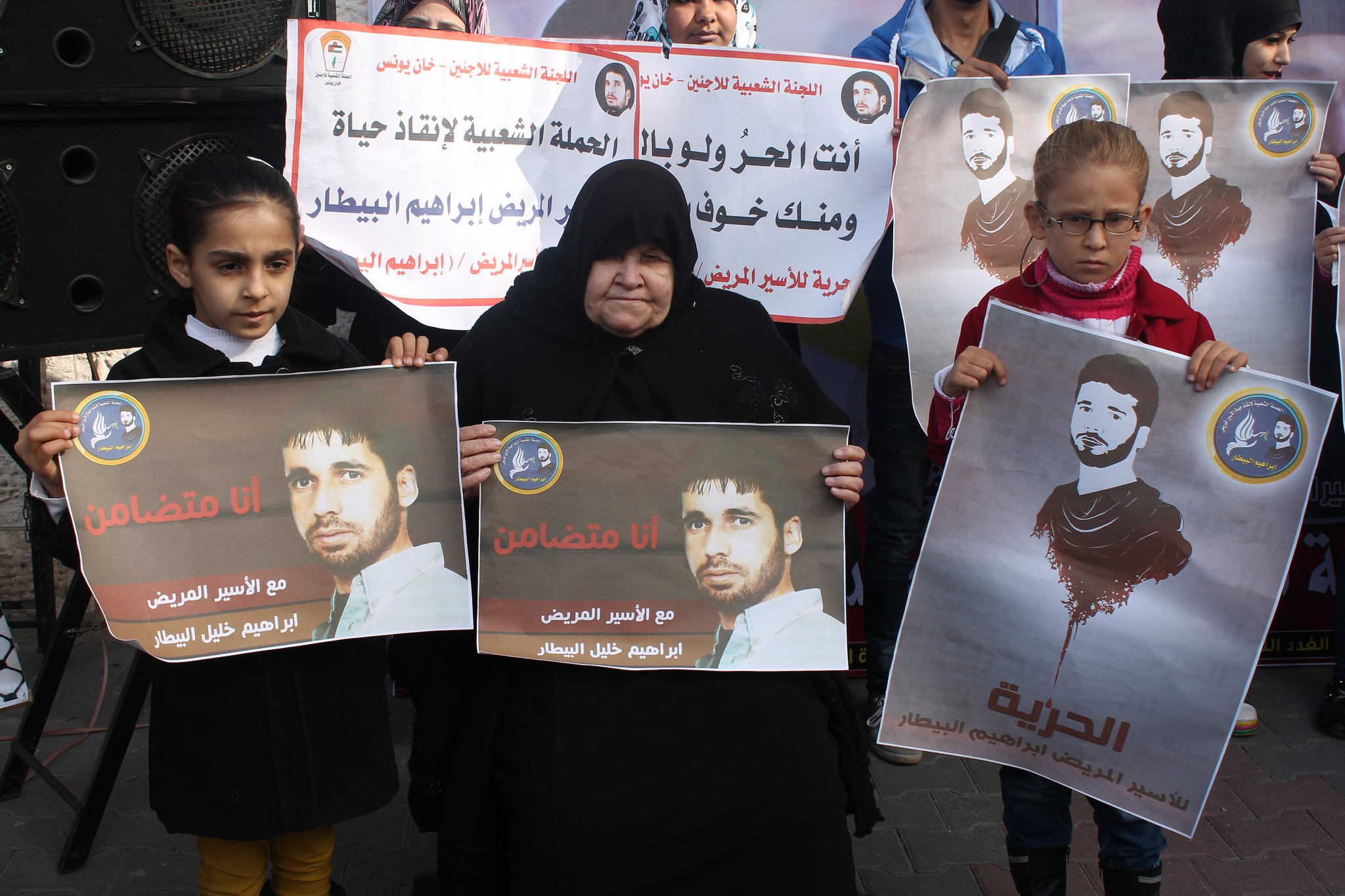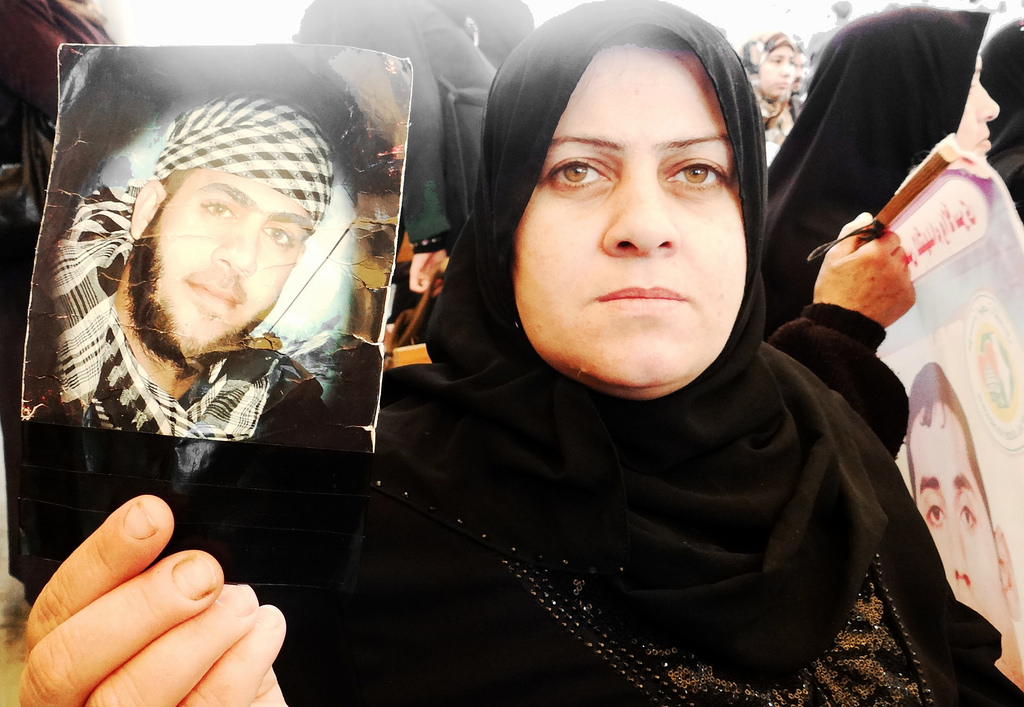Tag: sit-in
-

Gaza rallies in support of critically ill prisoner
9th February 2014 | The Electronic Intifada, Joe Catron | Gaza City, Occupied Palestine Sit-ins to support Palestinian prisoners — held every week since 1995 in the courtyard of the International Committee of the Red Cross’ Gaza office — have recently been followed by rallies outside for Ibrahim Bitar, a sick detainee in Israel’s Nafha prison. “We’ve garnered internal support for my…
-

In Gaza, remembering the sick Palestinian political prisoners in Israeli jails
2nd February 2014 | Resistenza Quotidiana, Sil | Gaza, Occupied Palestine At this week’s Gaza sit-in in solidarity with political prisoners in Israeli jails, the focus was on the sick prisoners. The Palestinian political prisoners in need of medical care number about 1,000, and the lives of many are in danger because they are often denied…
-

Photos: Rally to save sick prisoner Ibrahim Bitar follows Gaza sit-in for detainees
20th January 2014 | International Solidarity Movement, Gaza Team | Gaza, Occupied Palestine Dozens of Palestinians joined a rally organized by the Popular Campaign to Save the Life of the Captive Patient Ibrahim Bitar outside the International Committee of the Red Cross’ Gaza office this morning. The gathering followed a weekly sit-in by families and supporters…
